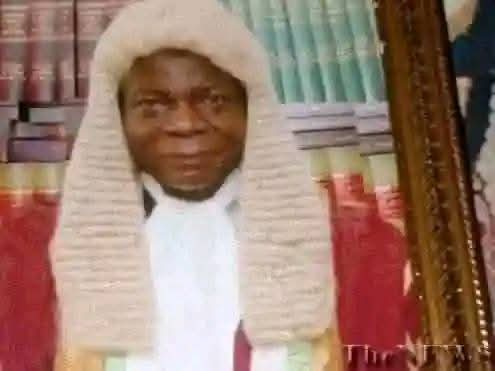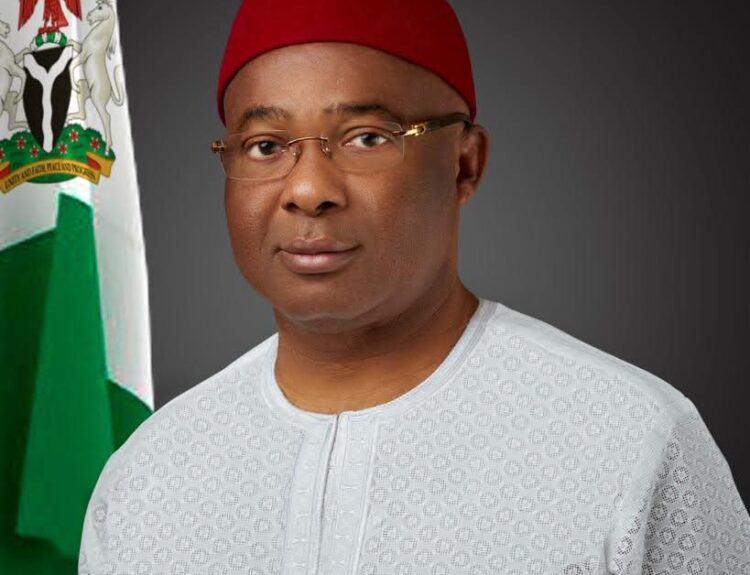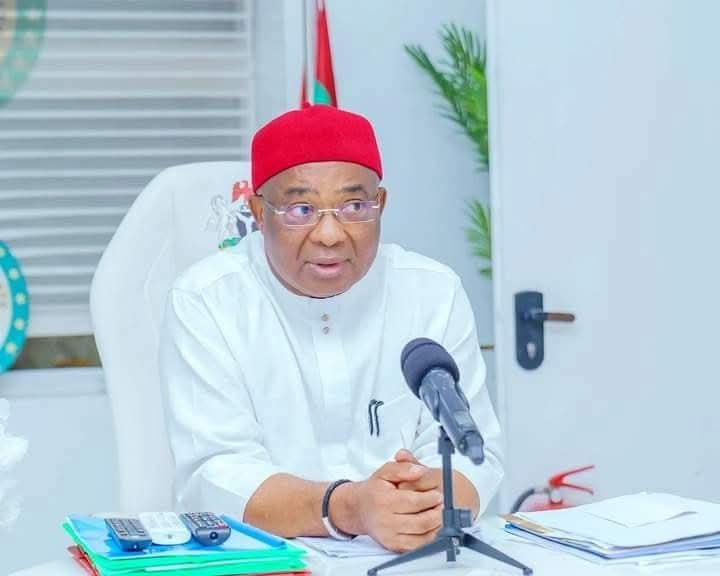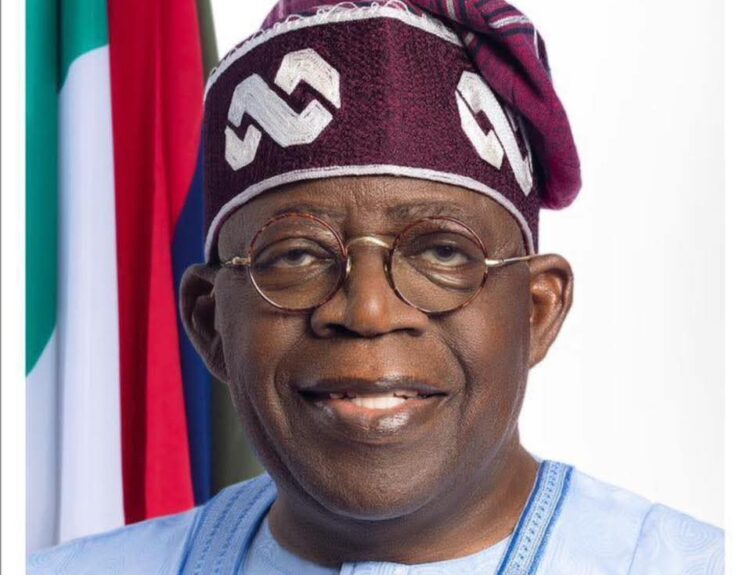By Ifeanyi Maduako
I stumbled on an article titled – ” 2027 Presidential election and the constitutional provision” – in the Nation newspaper of Friday, October 31, written by the former president of the Court of Appeal, Justice Isa Ayo Salami. The eminence of the author heightened my enthusiasm and interest about the article.
The question of the eligibility or otherwise of the former president of Nigeria, Dr Goodluck Ebele Jonathan has been a matter of debate for quite some time. Therefore, when a man of the status of the former president of the court of Appeal weighed into the matter, it’s worth paying attention.
This writer is not a lawyer, but I beg to disagree with the position of the former president of the Court of Appeal on the contentious matter. I may not be worthy to debate with him on any matter that has to do with law. However, law itself was derived from logic and common sense.
The eminent jurist based his argument on Section 137(3) of the 2017 constitutional amendment signed into law in 2018 which stipulates that, “A person who was sworn in to complete the term for which another person was elected as president shall not be elected to such office for more than a single term”.
Now, president Jonathan was elected as president for his first term in 2011 after completing the tenure of the late president Umaru Musa Yar’Adua who died in office in May 2010.He contested for the second term in 2015, which Justice Salami admitted that he was qualified to do, but lost to the late president Muhammadu Buhari of the All Progressives Congress (APC).
The eminent jurist averred that constitutional amendments can’t take a retroactive effect only on criminal matter but not civil matter.
This writer, with all due respect, noticed the subjective or biased inclination of the eminent jurist in the referenced article when in the last paragraph, he concluded his article by categorically saying that – “in an event of his winning the election he will be conveniently removed by the Court of Appeal in an election petition to that court which removal will be undoubtedly affirmed by the Supreme Court on the ground that his total tenure would have exceeded the eight years maximum tenure”.
As I said earlier, my argument is based on logic and common sense, and not law as applied by the eminent jurist. Jonathan is eminently eligible and qualified to contest the 2027 Presidential election as he did in 2015.
The truth of the matter is that it does appear that the present APC-led government is jittery about the rumoured Presidential ambition of the former president Jonathan. They seem to be deploying all manner of tactics to dissuade him from jumping into the 2027 Presidential election.
Nigeria has an unwritten template of presidential position rotating between the South and the North particularly since the advent of the Fourth Republic democratic dispensation.
President Bola Ahmed Tinubu is from the south. In the south right now, there are only two people who can or have the political gravitas and capabilities to defeat Tinubu in a presidential election, – Jonathan and Peter Obi.
Also, there are only two people in the south that have only one term in 2027 insofar as the presidential position is concerned. They are – President Tinubu and Jonathan.
Between Jonathan and Peter Obi, the former has the better chance to wrest power from Tinubu in 2027 for so many reasons, particularly his constitutional limitation of just one more term. Peter Obi is a credible candidate but his winning the election and subsequently becoming the president of Nigeria may delay power returning to the North in 2031 notwithstanding his pledge to do one term of four years. Should he become president, his ethnic group which this writer is part of may put pressure on him to serve out his constitutional right of eight years.
Now back to the issue of Jonathan’s eligibility. The constitutional amendment of 2018 can’t be a hindrance to him to contest the presidential election should he wish to do so. I beg to disagree with Justice Salami that a constitutional amendment can take a retroactive effect on a civil matter.
For instance, if the constitution of Nigeria is amended today that every adult should be entitled to the sum of one million naira every month. Would the implementation take effect from 1999 when the current constitution came into effect? Again, assuming constitution is amended today that the minimum age to be elected as a governor in Nigeria is not 50 years and any person elected below that age should not be entitled to a pension as a former governor, would it be right to say that all former governors in Nigeria since 1999 who were elected as governors below the age of 50 should no longer be referred as former governors or entitled to pension?
Jonathan is excluded or immune from the 2017 constitutional amendment. I do believe that a constitutional amendment should not take a retroactive effect on both criminal and civil matters. Before the last constitutional amendment which also affected the tenure of elected governors in Section 182(3), a governor in Nigeria served more than eight years. A couple of others were sworn in more than two times.
In Yobe state, when the then governor, Mamman Bello Ali died in office in January 2009, his then governor, and the current minister of police affairs, …. took over and completed the tenure of his late boss. He contested his own election in 2011 and won. He contested again in 2015, and won making him to serve a cumulative 10 years plus, the longest serving governor in the current civilian dispensation. By the 2017 constitutional amendment, that has been checked as governor Lucky Aiyedatiwa of Ondo state who took over after the death of Rotimi Akeredolu can only serve for one term because he became governor after the amendment of 2017 unlike Jonathan who became president before the amendment.
Talking about being sworn in more than two times. Former governors Emmanuel Uduaghan, Ibrahim Idris and few others were sworn in as governors more than two times. This was as a result of nullification of their elections by the courts. When they won the by-elections, they were sworn in again for the third time. That didn’t invalidate their mandate.
As the president of the Court of Appeal, Justice Salami was alleged to gifting the opposition parties particularly the then Action Congress of Nigeria (ACN) which the current president of Nigeria was the supreme leader, some governorship seats through the election petition tribunal which ended at the Court of Appeal where Justice Salami presided. The allegation was that he gifted Edo, Ondo, Ekiti,Osun states to the ACN before president Jonathan retired him. It was after that that a constitutional amendment was done to terminate a governorship petition to the supreme court.
Against the following background, was the eminent jurist unbiased on his assessment of Jonathan’s eligibility for the 2027 presidential election? When he concluded that the court of Appeal and the supreme court ewould remove Jonathan should he win the presidential election, was he guiding them on what to do? For me, Jonathan should contest the election. If he wins and becomes the president, let’s see how the court of Appeal and the supreme court would remove him based on Justice Salami’s judgement.
Maduako, writes from Owerri via ifeanyimaduako2017@gmail.com






